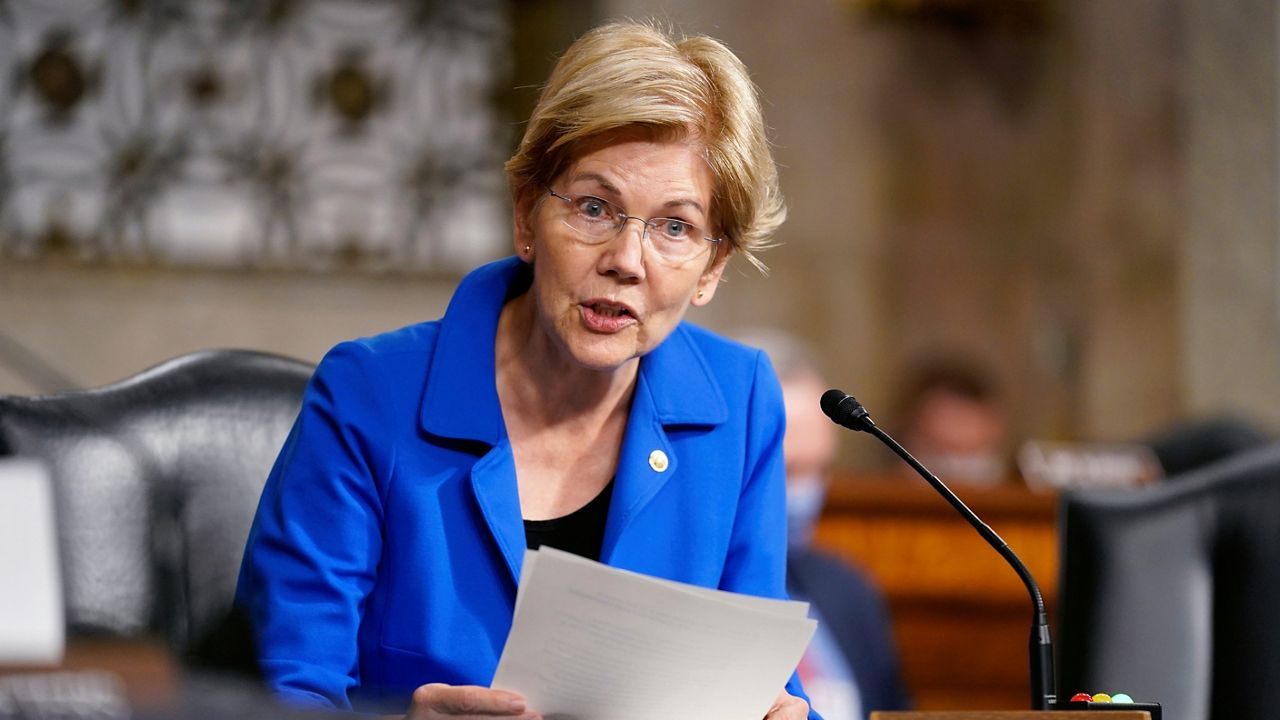Sens. Elizabeth Warren, D-Mass., Angus King, I-Maine, and Ron Wyden, D-Ore., on Tuesday unveiled a corporate minimum tax proposal aimed at companies making more than $1 billion in profits annually.
The lawmakers, joined by Sens. Michael Bennet, D-Colo., Ed Markey, D-Mass., and Sheldon Whitehouse, D-R.I., are hoping to include the tax as part of President Joe Biden's Build Back Better bill, the sweeping social safety net measure currently under negotiation by Congressional Democrats. The proposal is intended as a pay-for for the bill, according to the lawmakers.
The tax would establish a 15% minimum tax on the profits that these companies – estimated by the lawmakers to be roughly numbering 200 – report to shareholders over a three year period, generating "hundreds of billions in revenue over ten years," according to a statement.
The tax would also "preserve the value of business credits – including R&D, clean energy, and housing tax credits – and allow credits for taxes paid to foreign countries" and "include some flexibilities for companies to carry forward losses, utilize foreign tax credits, and claim a minimum tax credit against regular tax in future years."
Warren and King, along with Rep. Don Beyer of Virginia, developed the proposal with Wyden, who chairs the Senate Finance Committee, along with White House and the Treasury Department.
"The most profitable corporations in the country are often the worst offenders when it comes to paying their fair share. Year after year they report record profits to shareholders and pay little to no taxes," Wyden wrote in a statement. "Our proposal would tackle the most egregious corporate tax dodging by ensuring the biggest companies pay a minimum tax."
"Currently, the U.S. tax code allows large corporations to pay little or no tax because they are able to exploit a host of loopholes, deductions, and exemptions to drive down their tax liability," the lawmakers wrote in a statement. "While these companies report billions in profits, they often pay no income tax to the IRS and leave hardworking families holding the bag."
The lawmakers specifically called out tech giant Amazon, which they said only paid an "effective tax rate of just 4.3% – well below the 21% corporate tax rate" despite $45 billion in profits over the last 3 years.
The pressure to find alternative sources of revenue for the Build Back Better bill after Sen. Kyrsten Sinema, D-Ariz., one of the caucus' key centrist voices, objected to raising the corporate tax rate from 21% and to her party’s initial proposal to raise tax rates on wealthy Americans by undoing the Trump-era tax cuts on those earning beyond $400,000.
Sinema indicated in a statement later Tuesday evening that she supports the corporate minimum tax proposed by Warren, King and Wyden, a major step forward as negotiations on the Build Back Better proposal reach a fever pitch.
"This proposal represents a commonsense step forward toward ensuring that highly profitable corporations – which sometimes can avoid the current corporate tax rate – pay a reasonable minimum corporate tax on their profits, just as everyday Arizonans and Arizona small businesses do," Sinema wrote in a statement.
The Associated Press contributed to this report.



